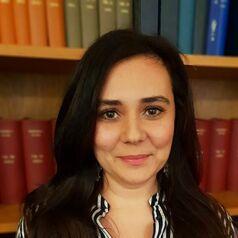
Anna Adamecz
Research Associate in Economics, UCL
Dr. Anna Adamecz is a Senior Research Fellow at the Centre for Economic and Regional Research Institute of Economics (KRTK KTI), a Research Associate at the University College London Social Research Institute (UCL SRI), and a Fellow at the Global Labor Institute (GLO). She earned her Ph.D. in Economics at the Central European University (CEU). She is an empirical social scientist aiming to understand the world better by one small question at a time. Her research interests include labor economics, the economics of education, fertility, social and educational mobility, and gender inequalities.
Less ![]()
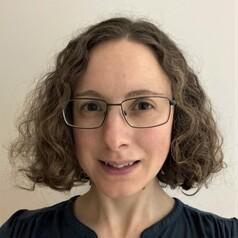
Anna Anderson
Research Fellow in Qualitative Research, University of Leeds
I am a Research Fellow in Qualitative Research with a physiotherapy background. My research interests include improving accessibility/inclusion in health research, supporting musculoskeletal self-management, and developing digital behaviour change interventions. My main methodological interests include qualitative research, mixed methods research, and complex intervention development.
Less ![]()
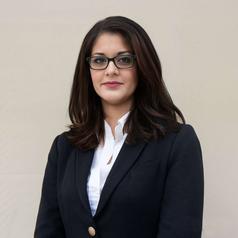
Anna Andreou
Senior Lecturer and Director of Headache Research, Consultant clinical scientist; King's College London and Guy's and St Thomas' NHS Trust, King's College London
Dr Andreou is the Director of Headache Research and Senior Lecturer at King’s College London and the Headache Centre, Guy’s and St Thomas’s NHS Foundation Trust.
Anna completed her PhD in Migraine and Neurological Sciences at the Institute of Neurology, University College London, before continuing her studies and research at the University of California, San Francisco, and Imperial College London. She has received several awards, including, the Research Innovation Award from the Medical Research Council, the Early Research Career Grant from the International Association for the Study of Pain, and the International Headache Society-Headache Research Excellence award. Recently she received the senior fellowship of the Medical Research Foundation. She is currently serving as a Trustee of the International Headache Society, and she is chairing the Headache special interest group of the British Pain Society.
Her research interests include understanding migraine and cluster headache pathophysiology, and developing novel therapies for the prevention of headache conditions and facial pain.
Less ![]()
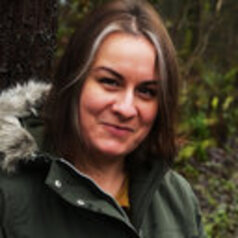
Anna Baatz
PhD Candidate and Associate Lecturer in human-animal interactions, University of Salford
PhD final year researcher at University of Salford in collaboration with Dogs Trust in interactions between children and dogs in the family home and the effect of education programmes on this. Currently lecturing in Developmental Psychology and Animal Assisted Interventions. Also part time researcher and evaluator for Canal & River Trust.
Research interests: Child-dog interactions, Anthrozoology, Impact evaluation, One Health, Nature Connection,
Less ![]()

Anna Balzer
Lecturer, Medical Science School of Health, Medical and Applied Sciences, CQUniversity Australia
Less ![]()
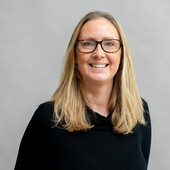
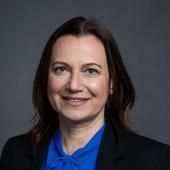
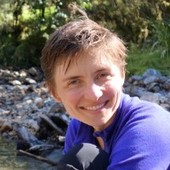
Anna Berka
Senior Lecturer, School of Management and Marketing, Te Kunenga ki Pūrehuroa – Massey University
Less ![]()
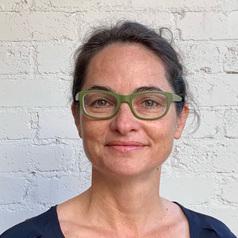
Anna Bruce
Associate Professor in the Collaboration on Energy and Environmental Markets and the School of Photovoltaic and Renewable Energy Engineering, UNSW Sydney
Dr Anna Bruce is an Associate Professor in the School of Photovoltaic and Renewable Energy Engineering and Joint Director (Engineering) at the Collaboration on Energy and Environmental Markets (CEEM) at UNSW Sydney. She leads CEEM’s research theme in Distributed Energy Systems, distributed generation and demand-side participation. Her research includes modelling, analysis and integration of renewable energy and distributed energy resources into electricity industries; energy access in developing countries; and energy policy and regulation. Anna is currently leading one of five subprojects in the ARC Hub for Integrated Storage Solutions, the Racefor2030 24/7 TRUZERO Project, and the SunSPOT Solar Assessment Tool upgrade. Other recent projects include Energy Data for Smart Decision Making through the Australian Government’s Smart Cities and Suburbs Program, Integrated Smart Home Energy Management Technologies through the CRC-P program. Anna contributes to the IEA’s PV Power Systems programmes and leads the APVI’s Solar Mapping and Data project.
Less ![]()
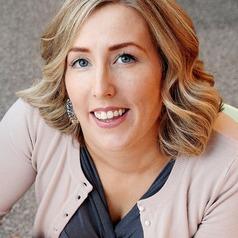
Anna Bryson
Dr Anna Bryson is a Senior Lecturer in the School of Law and a Fellow at the Senator George J. Mitchell Institute for Global Peace, Security and Justice.
Her most recent research has developed at the intersection of socio-legal studies, transitional justice and oral history.
She is currently working on two RCUK funded projects - 'Enhancing Democratic Habits: An Oral History of the Law Centre Movement' (AHRC-funded collaboration with colleagues at the Centre for Socio-Legal Studies, University of Oxford, and the British Library) and 'Apologies and Dealing with the Past' (Principal Investigator on ESRC Impact Acceleration grant). In addition, her recently awarded British Academy Mid-Career Fellowship is supporting the completion of her fifth book titled ‘Conflict and Civility: Memory, Identity and Dealing with the Past in Northern Ireland’.
Anna has previously been co-Investigator on a number of externally funded research projects including ‘Apologies, Abuses and Dealing with the Past: A Socio-Legal Analysis’ (ESRC) and ‘Brexit and Northern Ireland: The Constitutional, Conflict Transformation, Human Rights and Equality Consequences’ (ESRC). The co-authored monograph (with K. McEvoy and L. Mallinder) arising from an ESRC-funded international comparative project on ‘Lawyers in Conflict and Transition’ was published by Cambridge University Press in March 2022.
Prior to her appointment to QUB Law in 2014, Anna was involved in a series of research projects exploring various aspects of the history and legacy of conflict (including the €1.1million EU-funded ‘Peace Process: Layers of Meaning’ project she co-directed with S. McConville). She has significant expertise in the theory and practice of oral history and has to date conducted more than 200 substantial interviews with a wide range of individuals including victims and survivors, former security force personnel, ex-combatants and former prisoners, lawyers, politicians and senior government officials. She is the Northern Ireland representative for the Oral History Society and provides accredited training on behalf of the organisation.
In 2020 Anna was elected as Chair of the independent human rights organisation, the Committee on the Administration of Justice. She is also a member of the AHRC Peer Review College. In 2021 she was a Visiting Scholar at the Centre for Socio-Legal Studies at the University of Oxford.
In recognition of her successful delivery of a range of modules at undergraduate and post-graduate level and the fact that her career is grounded in 'an integrated approach to teaching and research leadership' she was appointed Senior Fellow of the Higher Education Academy in July 2021.
As Impact Champion for the School of Law, Anna works closely with colleagues at School and Faculty level to help cultivate world-leading research that addresses both local and global challenges. She is the QUB staff representative for the Knowledge Exchange Seminar Series at Stormont and she was recently elected to the Board of the Socio-Legal Studies Association (and the Impact Award committee). Drawing on her previous experience as Chair of the QUB Law ethics committee she was appointed to the Royal Irish Academy’s ‘Ethical, Political, Legal and Philosophical Studies Committee’ for the 2022-26 term.
Anna was co-author (with K. McEvoy and L. Mallinder) of a REF 2021 4* Impact Case Study on Dealing with the Past in Northern Ireland. This reflected intense and sustained engagement with colleagues from QUB Law, the Committee on the Administration of Justice and a former senior Foreign and Commonwealth Office lawyer to inform key debates on dealing with the past in Northern Ireland and in particular to provide accessible legal and policy commentary to a wide range of stakeholders. Outputs from the collaboration have included authoring over 30 policy documents and blogs, drafting ‘model legislation’, writing responses to government consultations and providing free technical legal and policy advice to key stakeholders in Northern Ireland (victims and survivors, civil society organisations, the British and Irish governments, political parties, veterans, former combatants, the British Army, the PSNI, religious leaders, politicians) as well the British and Irish governments and international actors e.g. Council of Europe, US Congress and the United Nations. During this time the Model Bill Team organised twenty public seminars and six major conferences (attended by senior representatives of the British and Irish governments). Anna has given expert evidence to the Joint Oireachtas Committee on the Good Friday Agreement (2018), the Northern Ireland Affairs Committee (2020, 2022) and the US House Foreign Affairs sub-committee on Europe (2022) and has contributed extensively to media analysis of issues relevant to her research (television, radio, blogs). In 2016 Anna was awarded a QUB Vice-Chancellor's Research Impact Prize for her work on the Oral History Archive proposed under the Stormont House Agreement. Further information regarding her work on legacy issues is available at: https://www.dealingwiththepastni.com/.
Less ![]()
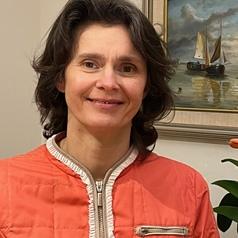
Anna Cartwright
Principal Lecturer in Accounting, Finance and Economics, Oxford Brookes University
Anna Cartwright is a Principal Lecturer in Economics at Oxford Brookes University. She is also a Senior RISCS Fellow on the Theme of Quantification and Cyber Risk. Her research interests include the economics of cyber security, industrial economics and game theory. She led a Home Office funded project on cyber behaviour in micro organisations that delivered and evaluated cyber security health checks aimed at micro organisations. As a RISCS Fellow she is leading a research project evaluating the role of local IT companies in disseminating cyber best practice to micro organisations. A particular interest is how to measure and quantify cyber risk in organisations, large and small.
Less ![]()
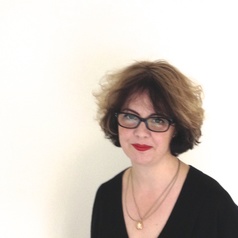
Anna Childs
I am Deputy Director (Academic) of the International Development Office at the OU, with oversight across all our programmes which deal with teacher training, child rights, higher education capacity building and more. Issues like trafficking are part of a broader theory of change around education – for example teacher training is an essential element in supporting children to be aware of their own rights. I have been on the board of a school in Kathmandu for about 15 years, and visit Nepal about twice a year on average.
I have edited 3 books, written 12 chapters and delivered a large number of papers, conference presentations etc. My early research area (most of which is published under Anna Peachey) was in online presence and student community, which transitioned into innovation in education for development. My last keynote was at a conference on Higher Education for Development in Ethiopia last summer, and I will soon deliver a keynote at Nepal's National Conference on Science and Technology, an event that takes place every 4 years and is inaugurated by the Prime Minister of Nepal. The theme for 2016 is Science, Technology and Innovation for Nepal’s Graduation to Developing Country Status.
I support the Director of International Development at The Open University in the strategic direction of project activity. Drawing on over fifteen years of experience in project design, management and evaluation, I also provide support for Project Academic Directors.
Along with delivering academic support for the International Development Office’s (IDO) current projects and for the development of new IDO projects, I guide and advise academics in the Faculties when developing bids and proposals for international development projects and research activity.
Having won The Open University Teaching Award for my work with distance learning in 2005, one of my projects was also shortlisted for The Times Education Award for Outstanding Innovation in ICT in 2008. I have been an expert speaker at over 25 global and UK conferences.
Less ![]()
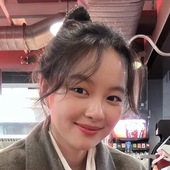
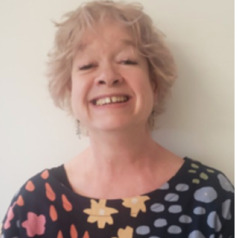
Anna Chur-Hansen
Professor of Psychology, University of Adelaide
Professor Anna Chur-Hansen is a Registered Psychologist with Endorsement in Health Psychology, who holds a PhD in Medical Education. She studies the human-animal bond and its impact on human physical, psychological and social health.
Less ![]()
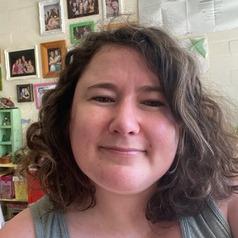
Anna Cooke
Honorary Fellow, School of the Environment, The University of Queensland
I am an Honorary Fellow at the School of the Environment at the University of Queensland. My colleagues and I are examining and developing approaches to ecological grief. Previously I was a PhD scholar researching motivation for action on climate change in the School of Psychology at UQ but withdrew due to disability.
Less ![]()
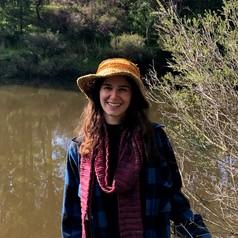
Anna Cresswell
Adjunct Research Fellow, UWA Oceans Institute, The University of Western Australia
Quantitative Marine Ecologist with expertise in coral reefs and ecologiccal modelling.
Less ![]()
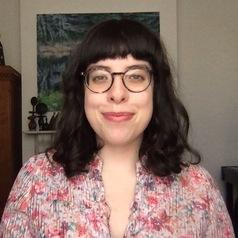
Anna Debinski
Research Assistant, The University of Melbourne
Anna Debinski is a PhD Candidate, Research Assistant and Sessional Tutor in the School of Culture and Communication at the University of Melbourne. Her research lies at the intersection of screen and disability studies. She has published work on disability and documentary, disability and stardom, the ethics of disability representation and disabled screen workers.
Less ![]()
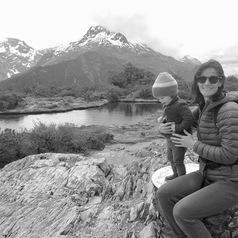
Anna DeMello
Research Fellow, University of Otago
I am currently an academic working at the University of Otago in Dunedin (Dept. of Preventive and Social Medicine). I am actively publishing in the area of Tobacco Control.
Less ![]()
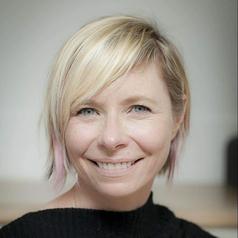
Anna Draffin
Professional associate, University of Canberra
Anna is a senior impact strategist, focused on policy and investment to drive economic and social returns across government, private and nonprofit sectors. She brings clear insight from a range of industries that have faced transformation and market uncertainties. Anna was appointed CEO of the Public Interest Journalism Initiative in March 2020, having served as strategic advisor to the board since late 2019.
Anna sits on the Victorian Government’s Metropolitan Development Advisory Panel, Homes Melbourne Advisory Board (City of Melbourne) and is a Non-Executive Director of the Community Council of Australia.
Less ![]()
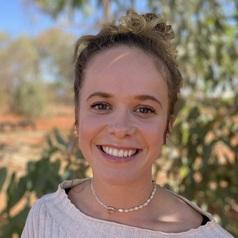
Anna Dunn
PhD candidate, Anangu Futures ARC Linkage , The University of Melbourne
PhD candidate, University of Melbourne
Less ![]()
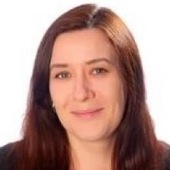
Anna Erickson
Professor of Nuclear and Radiological Engineering, Georgia Institute of Technology
Less ![]()
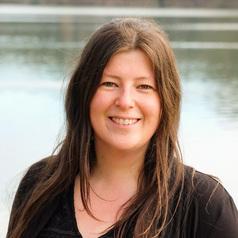
Anna Fiveash
ARC DECRA Fellow (Researcher), Western Sydney University
I'm a cognitive psychologist interested in the diverse connections between music and language, and how we can use these connections to uncover underlying cognitive processes in the brain. I'm particularly interested in the intriguing similarities between music and language for hierarchical structure building, rhythm, prediction, and memory, and what these similarities (and differences) can tell us about the brain. I am currently an ARC DECRA Research Fellow at The MARCS Institute for Brain, Behaviour and Development, Western Sydney University, Sydney Australia.
Less ![]()
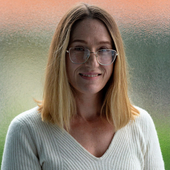
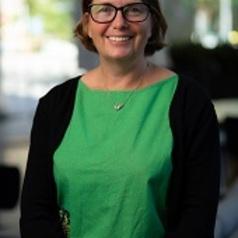
Anna Grage
Visiting Research Fellow, University of Adelaide
Dr Anna Grage has a background in marine environmental law and planning, and statutory (urban/environmental) planning. She has a Bachelor of Laws, a Bachelor of Planning and Design (Hons), and a PhD (University of Wollongong) that focuses on the consideration of cumulative and synergistic impacts within Australian legal frameworks for marine environmental impact assessment.
Less ![]()
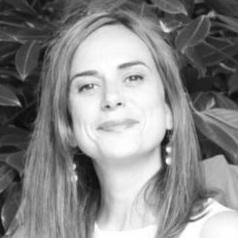
Anna Greenwood
Professor of Health History, University of Nottingham
Anna Greenwood is Professor of Health History at the University of Nottingham. She has authored a number of books and articles on the history of medicine- ranging from the history of western medicine in British colonial contexts, Florence Nightingale and the benefits of the Health Humanities.
Less ![]()
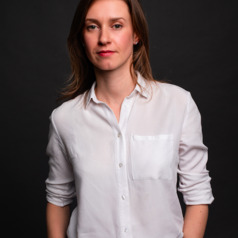
Anna Kvit
Anna Kvit is a visiting research fellow at University College London.
Her research is focused on women in the military of Ukraine, veterans’ reintegration into civilian life, and the gendered impacts of the war in Ukraine. Anna contributed to the development of programs and policies on the implementation of the Women, Peace and Security agenda in Ukraine. She co-taught Military Sociology at the National University of Kyiv-Mohyla Academy. Anna holds a BA degree in Sociology from the National University of Kyiv-Mohyla Academy (Ukraine) and MA degree in Global Political Economy from the University of Kassel (Germany).
Less ![]()
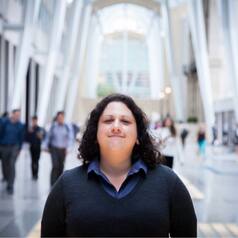
Anna Lippman
Sociology Instructor, York University, Canada
Department: Sociology
Dissertation topic: All I Need is One Mic:
Utilizing hip-hop culture for community-based youth knowledge mobilization and activism
RESEARCH INTERESTS
Identity; Youth Culture; Sociology of Music; Gender; Social Movements; Sociology of Education; Qualitative Methods; Racialization; Intersectionality; Gentrification
EDUCATION
York University 2019 - Present
Ph.D. Student, Sociology
Cumulative Grade Point Average (CGPA): 4.0
Comprehensive Exams: Sex and Gender Systems, Qualitative Methods
Committee: Carl James (supervisor), Elaine Coburn, Lesley Wood
“All I Need is One Mic:
York University 2017 - 2018
Master of Arts, Sociology Cumulative Grade Point Average (CGPA): 4.0
RRP Committee: Carl James (supervisor), Tania Das Gupta
“Growing Roses from Concrete: exploring how racialized youth build resistance identity through hip-hop culture”
Quest University Canada 2009 - 2013
Bachelor of Liberal Arts and Sciences
Thesis Question: What is the relationship between law and morality?
President’s Honour List
ADDITIONAL TRAINING
Indigenous Community Research Partnership Open Access Training 2022
Queens University
Knowledge Translation Canada Summer Institute 2022
Knowledge Translation Canada
Specialist Knowledge Translation Training Course 2022
SickKids Learning Institute
Innovation York Mobilize YU 2021
York University
Youth Engagement for Research 2019
Centre for Addiction and Mental Health
Community Based Research in Social Service Settings 2018
St. Michael’s Hospital, Li Ka Shing Knowledge Institute
Applied Suicide Intervention Skills Training 2017
Toronto Hostels Training Centre
Youth Mental Health First Aid 2016
Canadian Mental Health Association
Motivational Interviewing 2016
Corrections BC
Children Who Witness Abuse Counselling Certification I&II 2014
British Columbia Society of Transition Houses
Mediation Skills Level I 2014
Justice Institute of British Columbia
RESEARCH EXPERIENCE
Research Assistant
“The Story of a Generation” Dec 2020 – Present
Dr. Carl E. James, Dr. Paul Anisef
Research Assistant Nov 2019 – Mar 2020
Canadian Observatory on Homelessness
Dr. Stephen Gaetz
Research Assistant Aug 2018 – Dec 2019
Centre on Drug Policy Evaluation
Dr. Daniel Werb
Research Assistant Sep 2017 – Dec 2017
Dr. Amber M. Gazso
TEACHING EXPERIENCE
Instructor
York University
WRIT Sep 2022-Apr 2023
Teaching Assistant
York University
HREQ 1920: Male-Female Relationships Sep 2020-Sep 2022
(virtual)
Teaching Assistant
York University
SOCI 1010: Introduction to Sociology Sep 2019 – Apr 2020
Teaching Assistant
York University
Guest Lecture
Toronto Metropolitan University
“Do white People Have a Role to Play in Racial Justice?” Feb 21, 2022
Guest Lecture
York University
“Appropriation and Hip-Hop Culture” Feb 8, 2020
Guest Lecture
Quest University Canada
“Youth Political and Community Engagement” March 16, 2015
PUBLICATIONS
Lippman, A. (Mar 10 2023). Students Across ‘Canada’ Are Calling for an End to Genocidal Companies on Campus. The Excalibur.
Lippman, A. “Respect for the North: the sociopolitical significance of Toronto DJ culture” Hancock, M & Marsh, C. (Eds.). We Can Dance If We Want To: Canadian DJ Culture Turns Up Wilfred Laurier Press: Waterloo. (forthcoming)
REFEREED CONFERENCE PRESENTATIONS
Lippman, A. 2022 “Hip-Hop as a Knowledge Mobilization Tool”. Canadian Knowledge Mobilization Forum, Online.
Lippman, A. 2022. “Who’s Classroom? Disrupting Eurocentricity with hip-hop based pedagogy”. Canadian Society for the Study of Higher Education Annual Conference, Online.
Lippman, A. 2022. “"Who's Streets": Hip-hop as a place-making space for youth in carceral webs”. Canadian Sociological Association Annual Conference, Online.
Lippman, A. 2022. “Sensitive Thugs: reformulating masculinity and vulnerability through rap music”. Canadian Sociological Association Annual Conference, Online.
Lippman, A. 2022. “Straight from the Streets: hip-hop culture, masculinity, and homeless youth” Popular Culture Associate Annual Conference, Online.
Lippman, A. 2022. “We the North: The Sociopolitical importance of Toronto Rap History”
Global Conference on Hip Hop Education, Online.
Lippman, A. 2021. “Hip-Hop Hope: utilizing hip-hop to mobilize youth for social change”. Child and Youth Performance Conference, Toronto, ON.
Lippman, A. 2020. “Hip-Hop Culture as an Agent of Social Change”. York Sociology Graduate Association 9th Annual Symposium. Toronto, ON.
Lippman, Anna. 2020. “Engaging Youth in Community Based Research: The Squamish Teen Action and Advisory Group”. Health Xchange Conference. Vancouver, BC. (Cancelled).
Lippman, Anna. 2020. “Hip-Hop Based Activism and Youth Engagement”. Annual Meeting of the Canadian Sociological Association Conference, London, ON, June. (Cancelled).
Lippman, Anna. 2020. “Hierarchical Masculinities amongst Homeless Black Youth”. Annual Meeting of the Canadian Sociological Association Conference, London, ON, June. (Cancelled).
Lippman, Anna. 2020. “Homelessness, Hip-Hop, and Black Masculinity in Toronto”. Canadian Association of Social Work Education Conference, London, ON. (Cancelled).
Lippman, Anna. 2020. “Hip-Hop Based Youth Interventions in Toronto”. Canadian Association of Social Work Education Conference, London, ON. (Cancelled).
Lippman, Anna. 2020. Poster Presentation. “Teaching Outside the Classroom: Hip Hop Based Educational Interventions”. National Conference on Race and Ethnicity, New York, NY. (Cancelled).
Lippman, Anna. 2020. Poster Presentation “Pathways to Education: Hip-Hop Based Inquiry”. Research Centre for Public Sociology Open House. Toronto, ON. (Cancelled).
INVITED TALKS
Masri, L., Lippman, A., Sebei, M. 2023. “The Labour Movement and International Solidarity”. Labour4Palestine: Online, January.
Lippman, A. 2022. “Identity, Intersectionality, and Understanding Our Social Location”. Showing Up for Racial Justice.
Lippman, A. & Tecle, S. 2022. “Reimagining Safety Beyond Carcerality”. Social Planning
Toronto: Online, January.
Alqasem, M., Gill, R., Lippman, A. 2021. “Solidarity with Palestinian People and Workers”
Canadian Union of Public Employees National Convention: Online, November.
Lippman, A. 2021. “Poverty, Policing, and Social Determinants of Health” Health Providers Against Poverty: Online, October
Alqasem, M., Jarrar, Y., Lippman, A. 2021. “Beyond Our Local Borders: Palestine”. Jane and Finch Political Conversations Café: Online, June
Lippman, Anna. 2021. “Jewish Perspectives on the Palestine”. Palestine House Speakers Series: Mississauga, ON, May
Lippman, Anna. 2021. “Online Organizing 101”. Urban Alliance on Race Relations 2021 Workshop Series: Toronto, ON, February.
Lippman, Anna. 2016. “Reconciliation in the Boardroom; Beyond Land Acknowledgments”. British Columbia Library Trustee Association 2016 Conference: Libraries Connect! Richmond, BC, May.
Less ![]()
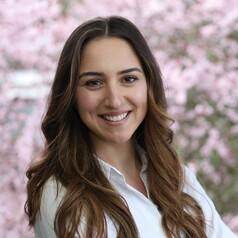
Anna Localio
Ph.D. Candidate in Health Services, University of Washington
I have a master's in public health from the University of Pennsylvania and am currently a 5th year PhD candidate in health services at the University of Washington School of Public Health.
Less ![]()
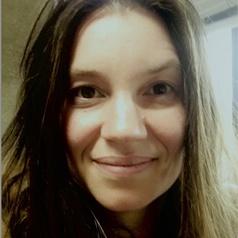
Anna Macdonald
Associate Professor, Global Development, University of East Anglia
Anna Macdonald is an associate professor in global development at the University of East Anglia and a senior visiting fellow at the Firoz Lalji Institute for Africa at the LSE. Anna is currently co-investigator on the ESRC-funded Centre for Public Authority and International Development (CPAID), which conducts interdisciplinary research to strengthen knowledge about how governance functions in impoverished and marginalised places across the world. She is co-editor of Humanitarianism: A Dictionary of Concepts (Routledge 2018) and her research has most recently been published in Africa, Development and Change, the International Journal of Transitional Justice, the Journal of Refugee Studies, African Affairs, and Law and Society Review.
Less ![]()
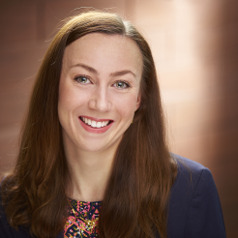
Anna Mariguddi
Lecturer in Education (music specialist), Edge Hill University
Dr Anna Mariguddi is a Lecturer, specialising in music education, in the department of Primary and Childhood Education, Faculty of Education, Edge Hill University. Anna has achieved a BMus (Hons), PGCE (secondary music education with specialist instrumental teaching), MA and PGCTHE before completing her PhD (focused upon perceptions of informal learning, secondary music education). Anna is a Fellow of the Higher Education Academy and a Fellow of Learning and Teaching at Edge Hill University. Prior to joining the University, Anna has taught instrumental lessons to primary-aged children and secondary school classroom music lessons.
Less ![]()
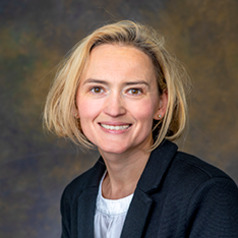
Anna Markovska
Deputy Director, PIER; Associate Professor, Criminology, Anglia Ruskin University
Anna joined Faculty of Arts, Humanities and Social Sciences at Anglia Ruskin University in 2005 and in January 2023 Anna moved to PIER.
Anna has been successful with a number of externally funded projects, including British Academy Small Grants (investigating drug related issues in Ukrainian prisons, the experience of migrant workers in Eastern Europe).
In May 2013, the Department of Humanities and Social Sciences hosted the 14th Cross-Border Crime Colloquium, welcoming leading European criminologists. Anna has collaborated on a number of research projects with Karazin Kharkiv National University and National University of Internal Affairs (Kharkiv, Ukraine).
Research interests
Countries in transition
Organised crime and corruption
Transnational policing
Police reforms in Ukraine
Legitimacy and trust
Policing in war time
War crimes in Ukraine
Environmental crimes and war
Areas of research supervision
Organised crime and corruption
Less ![]()
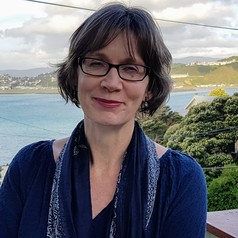
Anna Matheson
Associate Professor in Public Health and Policy, Te Herenga Waka — Victoria University of Wellington
I am based at Victoria University of Wellington and teach about health policy and health systems. I am currently leading the evaluation of Healthy Families NZ - a multi-community policy intervention to prevent chronic illnesses. I have a keen interest in complexity theory and its application to social systems and the empirical evidence on health. My research focus to date has mainly been examining interventions to address population health challenges, including the social determinants and equity, to better understand their potential effectiveness. I am an Principal Investigator with Te Pūnaha Matatini, the Aotearoa New Zealand Centre of Research Excellence (CoRE) for complex systems.
Less ![]()
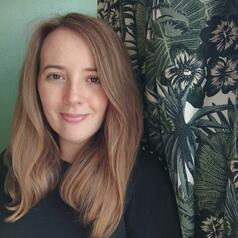
Anna McKay
Leverhulme Trust Early Career Fellow in History, University of Liverpool
My research focuses on prisoners, their lives, and experiences across the British maritime world, spanning the eighteenth and nineteenth centuries. My particular focus is on prison hulks, disused and partially dismantled warships used to house convicts and prisoners of war across this period.
Less ![]()
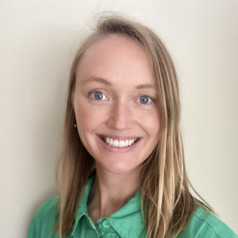
Anna Nicholas
PhD Candidate in Nutrition & Metabolism, University of Bath
Anna is currently doing a BBSRC-funded PhD in nutrition and metabolic physiology at the University of Bath. Here she is researching the effects of exogenous ketones on immune, metabolic and cognitive health in older adults. Before moving into nutrition, she worked in the sustainability sector in London for five years, both in communications and as a business consultant. She holds an MSc in Human Nutrition from the University of Surrey, an MSc in Environmental Technology from Imperial College London and a BA in Natural Sciences from the University of Cambridge.
Less ![]()
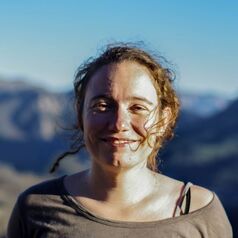
Anna Porcuna-Ferrer
Researcher, Cirad
Anna is an ethnoecologist working at Cirad. Her work explores human and environmental interactions in the context of agrobiodiversity, farmer management practices and climate change resilience and vulnerability.
Less ![]()
- Market Data





















